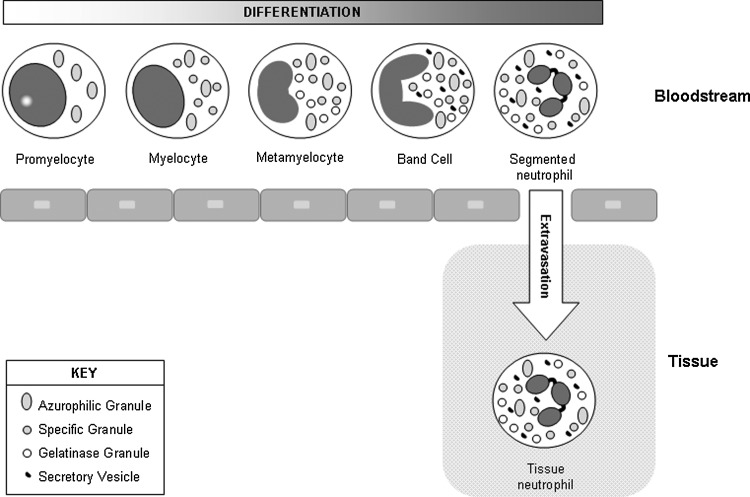Figure 3.
Neutrophil maturation and granule formation. Mature neutrophils have a variety of granule types that contain distinct sets of mediators involved in neutrophil function. Neutrophil precursors originate in the bone marrow and undergo differentiation in the blood. The formation of different granule types coincides with specific stages of neutrophil development. Azurophilic granules begin to form at the promyelocyte stage, specific granule formation spans the myelocyte and metamyelocyte stages, and gelatinase granules are produced in metamyelocytes and band cells. Secretory vesicles form last through endocytosis. Because gene expression patterns change during the course of neutrophil development, each granule type contains a distinct set of proteins. During an inflammatory response, mature neutrophils leave the bloodstream by undergoing extravasation. After traversing the endothelial cell lining of blood vessels, neutrophils enter the tissue and migrate to the site of inflammation or injury.

